JONES LAW GROUPYour Lawyers for Life! Personal Injury Law Firm in St. Petersburg
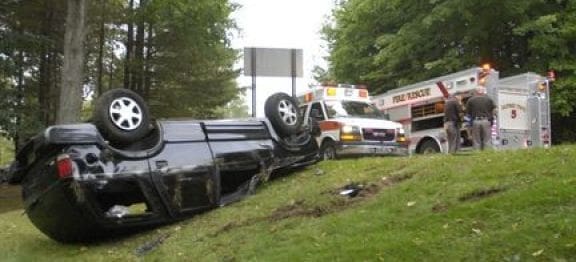
By: Heath C. Murphy + – Personal Injury Rollover car accidents usually occur as a single car accident, but they can also occur in a multi-car accident, as well. Most rollovers occur because of the type of vehicle, rate of speed, roadway conditions, environmental factors or attempting to avoid roadway incidents. Remember, just because you […]
Call our personal injury law office directly at (727) 512-9847
At Jones Law Group in St. Petersburg, FL, we would like to hear from you. Contact us for a free personal injury case consultation.
Call our personal injury law office at (727) 512-9847
Get educated on the Florida's personal injury laws and more.
By: Heath C. Murphy + – Personal Injury
Rollover car accidents usually occur as a single car accident, but they can also occur in a multi-car accident, as well. Most rollovers occur because of the type of vehicle, rate of speed, roadway conditions, environmental factors or attempting to avoid roadway incidents. Remember, just because you have been involved in a single car rollover accident, you may not be responsible. Faulty roadway design or maintenance and negligent vehicle design can contribute to a single car rollover accident.
The Different Types of Rollover Crashes
According to estimates, 95% of single car rollovers are “tripped’ rollovers.[1] This happens when one of the tires of the vehicle hits either an object or a soft spot or a bump. This will cause the vehicle to rollover. Trucks, minivans and SUVs are the vehicles which are most susceptible to a rollover crash. Soft soil, deep potholes, steep slopes and guard rails present the most common causes for a tripped rollover crash. A untripped rollover accident typically occurs in a car accident or when a driver attempts an evasive maneuver.
How to Avoid or Survive a Rollover
Vehicle accidents involving a rollover result in a higher percentage of life threatening and/or serious injuries. In order to avoid a rollover or to survive an accident that may result in a rollover, here are a few tips for safer travels:
1. Drive cautiously. When you are faced with hazardous road conditions such as rain, snow, or heavy construction areas, take heed to any warning signs in place on the roadways. Be aware of your surroundings and lower your speed to the speed limit or under the speed limit to avoid any unnecessary stops or avoidance of any object or vehicle that may obstruct your path. Avoidance of obstructions or vehicles may cause you to veer off the road, which is a major factor in rollover collisions.
2. Wear seat belts. Seat belts are a safety mechanism to keep you in place if you happen to be involved in an accident, especially a rollover. Most rollover fatalities occur because a driver or passenger without seatbelts engaged or more at risk of being thrown from the vehicle or tossed around, causing severe injuries that result in death.
3. Regularly check your vehicle. Most accidents occur because of the wear and tear on a vehicle that may go unnoticed. Tires can pose a high risk of sudden veering off a roadway, if they are worn and you have a blowout. Be aware if your vehicle drives improperly or you may have some faulty occurrences while driving. Stay apprised of the latest recalls in vehicles and safety conditions of your current vehicle. Regular maintenance is not just to preserve the life of your car, it can save your life and the lives of your loved ones as well.
4. Avoid overloading your vehicle. An unbalanced vehicle may be the number one factor in rollover collisions. Do not load heavy items on the roof or bed of your vehicle if that vehicle was not designed to carry heavy loads. If you are unsure of the amount of weight your vehicle can hold, refer to your owner’s manual before taking the risk. Avoid overloading one side of the vehicle, as well.
5. Choose your vehicle wisely. Every driver is aware of their driving habits. If you weave in and out of traffic, it may be best to avoid purchasing a vehicle such as an SUV or pickup trucks that have more of a tendency to rollover with immediate maneuvers or on slopes or hills. Any vehicle may be susceptible to a rollover, depending on the conditions and speed. Always practice safe driving habits no matter the type of vehicle.
Contact a Car Accident Lawyer at Jones Law Group
Have you or a loved one been the victim in a rollover crash? Contact an experienced St. Petersburg personal injury law firm today. When you contact our office we will immediately set an appointment where you will meet your attorney and be provided with his/her personal contact information. If you do not have transportation or you cannot drive, your attorney will travel to meet you and discuss your case with you.
If you or a loved one has been injured in a rollover accident, you should immediately call an experienced personal injury attorney in St. Petersburg at Jones Law Group at (727) 571-1333 during regular business hours or (727) 753-8657 on weekends or after regular business hours. We will evaluate your case for free and you will never pay us a dime unless we recover compensation for your injuries.
Jones Law Group
5622 Central Avenue
St. Pete, FL 33707
References:
[1] http://www.safercar.gov/Vehicle+Shoppers/Rollover/Types+of+Rollovers

Florida is one of the most dangerous states for pedestrians. Pedestrian fatality rates are nearly twice the national average. Additionally, I have, in the past, blogged on the dangers faced by bicyclists in Florida, where the fatality rate is four times the national average. I have heard, but not confirmed, Gulf Boulevard is the most […]
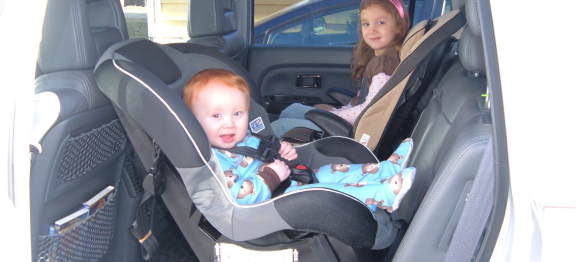
Does My Child Need to be in a Car Seat or a Booster Seat? Florida recently passed a more stringent child restraint law. As of January 1, 2015, all children under the age of 6 must ride in a federally approved car seat or booster seat.[1] It is a one size fits all law and, […]
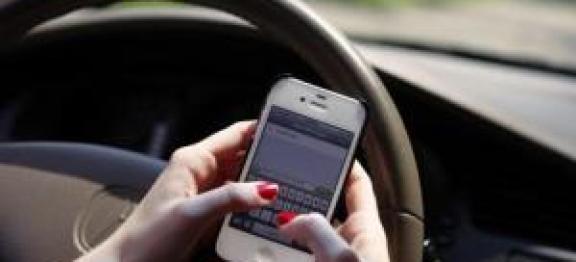
It is illegal to text and drive in Florida. The Pinellas County Sheriff or the St. Petersburg Police are perfectly willing to give tickets, but thus it seems that more people have caused an accident by texting than ticketed prior to an accident. In my opinion, the law is deficient because it allows for too […]
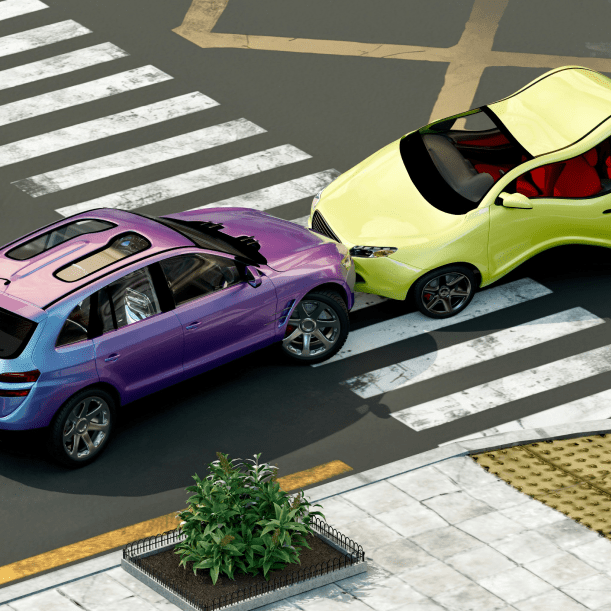
Searching for “motor vehicle accident attorneys near me” in Tampa Bay? Jones Law Group in St. Petersburg fights for maximum compensation. Call today!
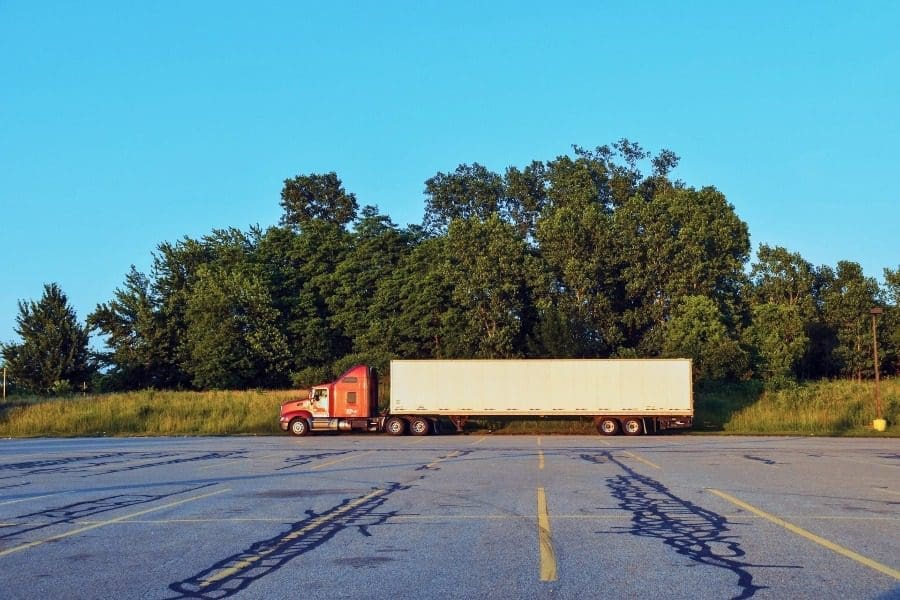
Semi-trucks are vehicles that have the potential to inflict a catastrophic amount of damage should they collide with another vehicle. The sheer size and weight of these vehicles allow them to not only crush cars with ease but also cover the entirety of a road in destruction. This is bad enough but these vehicles are […]

Truck accidents caused by poor weather, such as fog and rain can cause devastating accidents that result in life-changing injuries. Commercial vehicles can weigh up to 80,000 pounds when fully loaded, meaning that the impact of a large truck on a much smaller passenger car, often only weighing a few thousand pounds, is astronomical, causing […]
Speak with us before time runs out! In Florida, you have a limited window to file a personal injury case, so speak to an Attorney today.
Call our personal injury law office directly at (727) 512-9847
Jones Law Group is a dedicated personal injury lawyer in St. Petersburg, FL, serving the Tampa Bay area since 2006. Our experienced attorneys specialize in car accidents, slip and fall cases, employment law disputes, construction law issues, and overtime wage claims, fighting for maximum compensation on a contingency fee basis. Contact us for a free consultation to discuss your case.
Call our personal injury law office at (727) 512-9847
© Copyright 2006–2025 Jones Law Group Attorneys at Law. All rights reserved. Privacy Policy Terms of Use
Attorney Advertising.
The information on this website is for general information purposes only. Nothing on this site should be taken as legal advice for any individual case or situation. This information is not intended to create, and receipt or viewing does not constitute, an attorney-client relationship. Past results do not guarantee similar outcomes.
Are you injured or wronged and interested in a consultation? Fill out the form for a free consultation with us.